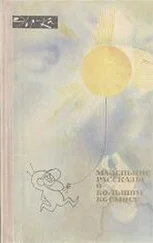But Mrs. Rivers was not destined to see her guest that night. Dr. Duchesne, under the safe lee of the door, explained that Mr. Hamlin had been exhausted by the journey, and, assisted by a mild opiate, was asleep in the carriage; that if Mrs. Rivers did not object, they would carry him at once to his room. In the flaring and guttering of candles, the flashing of lanterns, the flapping of coats and shawls, and the bewildering rush of wind, Mrs. Rivers was only vaguely conscious of a slight figure muffled tightly in a cloak carried past her in the arms of a grizzled negro up the staircase, followed by Dr. Duchesne. With the closing of the front door on the tumultuous world without, a silence fell again on the little parlor.
When the doctor made his reappearance it was to say that his patient was being undressed and put to bed by his negro servant, who, however, would return with the doctor to-night, but that the patient would be left with everything that was necessary, and that he would require no attention from the family until the next day. Indeed, it was better that he should remain undisturbed. As the doctor confined his confidences and instructions entirely to the physical condition of their guest, Mrs. Rivers found it awkward to press other inquiries.
‘Of course,’ she said at last hesitatingly, but with a certain primness of expression, ‘Mr. Hamlin must expect to find everything here very different from what he is accustomed to – at least from what my husband says are his habits.’
‘Nobody knows that better than he, Mrs. Rivers,’ returned the doctor with an equally marked precision of manner, ‘and you could not have a guest who would be less likely to make you remind him of it.’
A little annoyed, yet not exactly knowing why, Mrs. Rivers abandoned the subject, and as the doctor shortly afterwards busied himself in the care of his patient, with whom he remained until the hour of his departure, she had no chance of renewing it. But as he finally shook hands with his host and hostess, it seemed to her that he slightly recurred to it. ‘I have the greatest hope of the curative effect of this wonderful locality on my patient, but even still more of the beneficial effect of the complete change of his habits, his surroundings, and their influences.’ Then the door closed on the man of science and the grizzled negro servant, the noise of the carriage wheels was shut out with the song of the wind in the pine tops, and the rancho of Windy Hill possessed Mr. Jack Hamlin in peace. Indeed, the wind was now falling, as was its custom at that hour, and the moon presently arose over a hushed and sleeping landscape.
For the rest of the evening the silent presence in the room above affected the household; the half-curious servants and ranch hands spoke in whispers in the passages, and at evening prayers, in the dining room, Seth Rivers, kneeling before and bowed over a rush-bottomed chair whose legs were clutched by his strong hands, included ‘the stranger within our gates’ in his regular supplications. When the hour for retiring came, Seth, with a candle in his hand, preceded his wife up the staircase, but stopped before the door of their guest’s room. ‘I reckon,’ he said interrogatively to Mrs. Rivers, ‘I oughter see ef he’s wantin’ anythin’?’
‘You heard what the doctor said,’ returned Mrs. Rivers cautiously. At the same time she did not speak decidedly, and the frontiersman’s instinct of hospitality prevailed. He knocked lightly; there was no response. He turned the door handle softly. The door opened. A faint clean perfume – an odor of some general personality rather than any particular thing – stole out upon them. The light of Seth’s candle struck a few glints from some cut-glass and silver, the contents of the guest’s dressing case, which had been carefully laid out upon a small table by his negro servant. There was also a refined neatness in the disposition of his clothes and effects which struck the feminine eye of even the tidy Mrs. Rivers as something new to her experience. Seth drew nearer the bed with his shaded candle, and then, turning, beckoned his wife to approach. Mrs. Rivers hesitated – but for the necessity of silence she would have openly protested – but that protest was shut up in her compressed lips as she came forward.
For an instant that awe with which absolute helplessness invests the sleeping and dead was felt by both husband and wife. Only the upper part of the sleeper’s face was visible above the bedclothes, held in position by a thin white nervous hand that was encircled at the wrist by a ruffle. Seth stared. Short brown curls were tumbled over a forehead damp with the dews of sleep and exhaustion. But what appeared more singular, the closed eyes of this vessel of wrath and recklessness were fringed with lashes as long and silky as a woman’s. Then Mrs. Rivers gently pulled her husband’s sleeve, and they both crept back with a greater sense of intrusion and even more cautiously than they had entered. Nor did they speak until the door was closed softly and they were alone on the landing. Seth looked grimly at his wife.
‘Don’t look much ez ef he could hurt anybody.’
‘He looks like a sick man,’ returned Mrs. Rivers calmly.
The unconscious object of this criticism and attention slept until late; slept through the stir of awakened life within and without, through the challenge of early cocks in the lean-to shed, through the creaking of departing ox teams and the lazy, long-drawn commands of teamsters, through the regular strokes of the morning pump and the splash of water on stones, through the far-off barking of dogs and the half-intelligible shouts of ranchmen; slept through the sunlight on his ceiling, through its slow descent of his wall, and awoke with it in his eyes! He woke, too, with a delicious sense of freedom from pain, and of even drawing a long breath without difficulty – two facts so marvelous and dreamlike that he naturally closed his eyes again lest he should waken to a world of suffering and dyspnoea [267]. Satisfied at last that this relief was real, he again opened his eyes, but upon surroundings so strange, so wildly absurd and improbable, that he again doubted their reality. He was lying in a moderately large room, primly and severely furnished, but his attention was for the moment riveted to a gilt frame upon the wall beside him bearing the text, ‘God Bless Our Home,’ and then on another frame on the opposite wall which admonished him to ‘Watch and Pray.’ Beside them hung an engraving of the ‘Raising of Lazarus [268],’ and a Hogarthian [269]lithograph of ‘The Drunkard’s Progress.’ Mr. Hamlin closed his eyes; he was dreaming certainly – not one of those wild, fantastic visions that had so miserably filled the past long nights of pain and suffering, but still a dream! At last, opening one eye stealthily, he caught the flash of the sunlight upon the crystal and silver articles of his dressing case, and that flash at once illuminated his memory. He remembered his long weeks of illness and the devotion of Dr. Duchesne. He remembered how, when the crisis was past, the doctor had urged a complete change and absolute rest, and had told him of a secluded rancho in some remote locality kept by an honest Western pioneer whose family he had attended. He remembered his own reluctant assent, impelled by gratitude to the doctor and the helplessness of a sick man. He now recalled the weary journey thither, his exhaustion and the semi-consciousness of his arrival in a bewildering wind on a shadowy hilltop. And this was the place!
He shivered slightly, and ducked his head under the cover again. But the brightness of the sun and some exhilarating quality in the air tempted him to have another outlook, avoiding as far as possible the grimly decorated walls. If they had only left him his faithful servant he could have relieved himself of that mischievous badinage which always alternately horrified and delighted that devoted negro. But he was alone – absolutely alone – in this conventicle!
Читать дальше
Конец ознакомительного отрывка
Купить книгу












